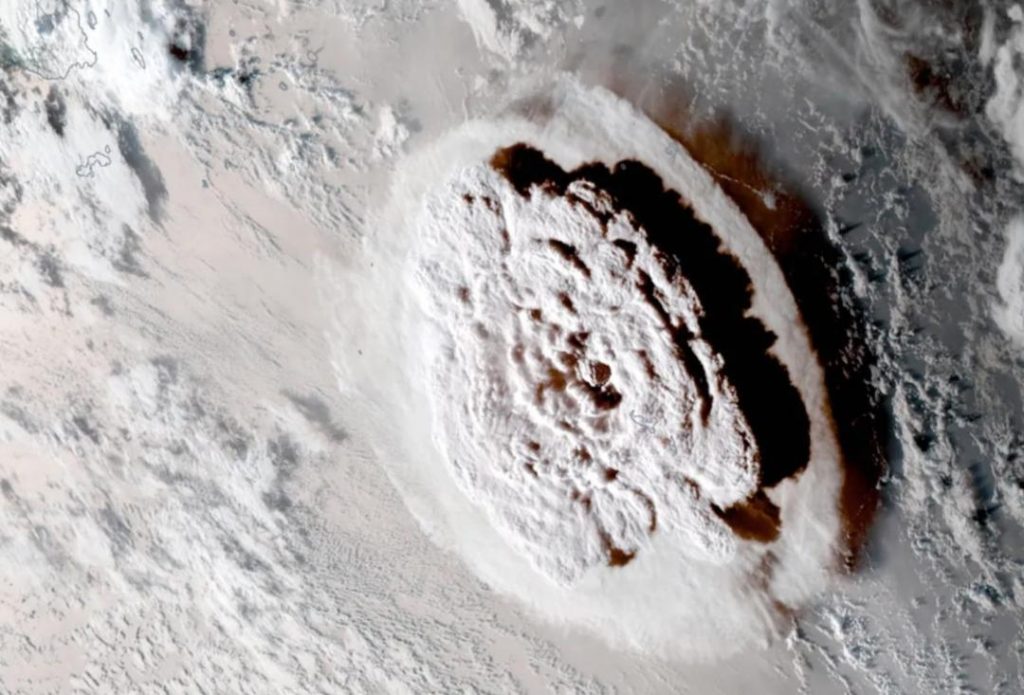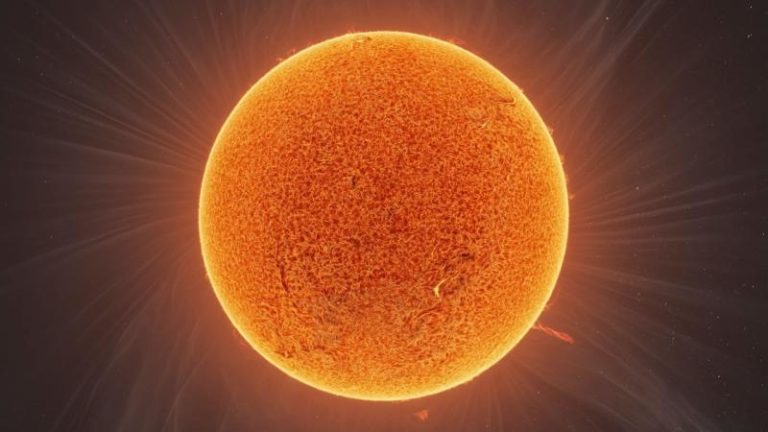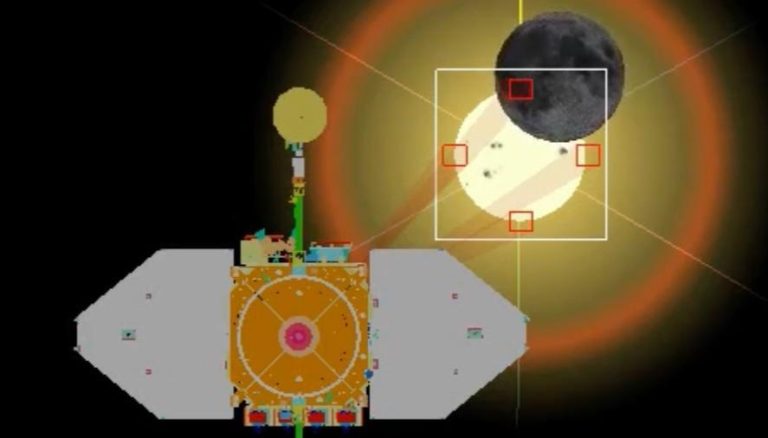
Massive Volcanic Eruption Sent Shockwaves into Space: Scientists
In a groundbreaking study, scientists have discovered that the massive eruption of the underwater Tonga volcano in the South Pacific in January 2022 was not only catastrophic for the region but also had a profound impact on the upper atmosphere. The eruption, which was one of the largest in recent history, sent shockwaves into space, lofting material to heights exceeding 50 kilometers and causing a dramatic response in the thermosphere, the layer of the atmosphere that extends from about 50 to 600 kilometers above the Earth’s surface.
The study, published in the Journal of Geophysical Research: Atmospheres, analyzed data from a network of satellite sensors and ground-based instruments to understand the effects of the eruption on the upper atmosphere. The researchers found that the eruption produced secondary gravity waves, which are rare atmospheric phenomena that can travel long distances and cause significant changes in the upper atmosphere.
The Tonga volcano eruption was a massive event that was felt across the globe. The eruption was so powerful that it was heard and felt thousands of kilometers away, and it triggered tsunami warnings and evacuations in several countries. The eruption also caused significant damage to the environment and infrastructure in the region, with ash and gas from the volcano affecting the climate and ecosystems.
However, the study published in the Journal of Geophysical Research: Atmospheres reveals that the eruption had an even more profound impact on the upper atmosphere. The researchers found that the eruption produced a dramatic response in the thermosphere, with temperatures increasing by up to 20 degrees Celsius in some areas. This response was caused by the injection of large amounts of gas and dust into the upper atmosphere, which interacted with the solar radiation and caused the temperatures to rise.
The study’s lead author, Dr. Xianbin Cai, a researcher at the University of Colorado Boulder, said that the eruption was a significant event that had a profound impact on the upper atmosphere. “Our recent investigation discovered the dramatic thermospheric responses at satellite altitudes,” Dr. Cai said. “This was a rare event, and we were able to capture it because of the unique combination of satellite and ground-based data we collected.”
The researchers used data from a range of sources, including satellite sensors and ground-based instruments, to analyze the effects of the eruption on the upper atmosphere. They found that the eruption produced a range of atmospheric responses, including changes in the temperature, density, and composition of the thermosphere.
The study’s findings have significant implications for our understanding of the Earth’s atmosphere and the impact of volcanic eruptions on the upper atmosphere. The researchers suggest that the study could help improve our understanding of the complex interactions between the atmosphere and the solar wind, which can have significant effects on the Earth’s climate and weather patterns.
The Tonga volcano eruption is a powerful reminder of the impact that volcanic activity can have on the Earth’s atmosphere. The study’s findings highlight the importance of monitoring volcanic activity and the upper atmosphere, and the need for further research into the complex interactions between the atmosphere and the Earth’s surface.
Source:
https://agupubs.onlinelibrary.wiley.com/doi/10.1029/2024AV001470






